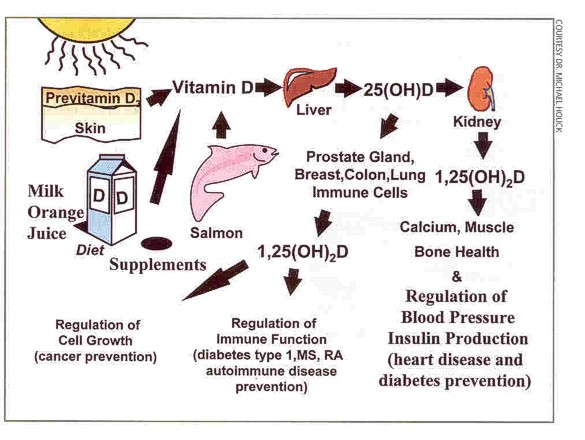Vitamin D Deficiency Ups Risk of Multiple Sclerosis, Arthritis, Diabetes, and Cancers
 August 26, 2010
August 26, 2010  Kyriaki (Sandy) Venetis
Kyriaki (Sandy) Venetis Just about the only time most of us notice vitamin D is when we see it on a milk cartoon and even then we’re oblivious to it, but growing research says that maybe we shouldn’t be.
A study published earlier this week in Genome Research has mapped out the points where vitamin D interacts with our DNA. It also looked at how a deficiency of the vitamin in the body can increase the risk of a number of chronic conditions and illnesses.

Deficiencies in vitamin D can contribute to lower insulin production, which can exacerbate type-1 diabetes, sometimes called juvenile diabetes or insulin-dependent diabetes. This is a chronic condition where the pancreas produces little or no insulin.
Overall, vitamin D works in several ways. Dr. Allen C. Bowling, a neurologist at the Rocky Mountain Multiple Sclerosis Center, said, “It’s well known that vitamin D works to promote calcium absorption (which is why it’s in milk) for strong bones. However, recent research also suggests that vitamin D may have important effects on the immune system, and may help regulate cell growth and differentiation.
“In studies of immune cells, vitamin D shows anti-inflammatory effects. Additionally, a prior large ten-year study found that women who took vitamin D supplements were 40% less likely to multiple sclerosis.”

